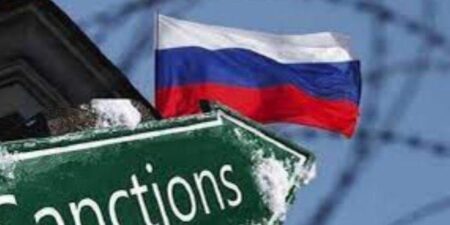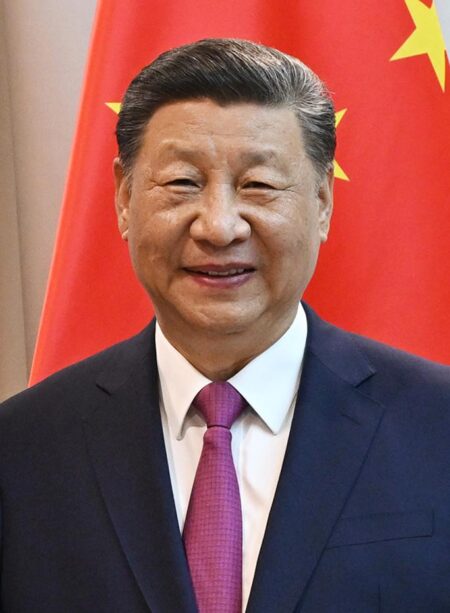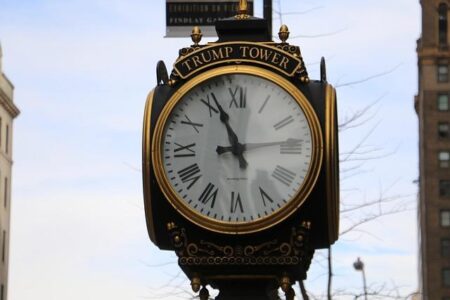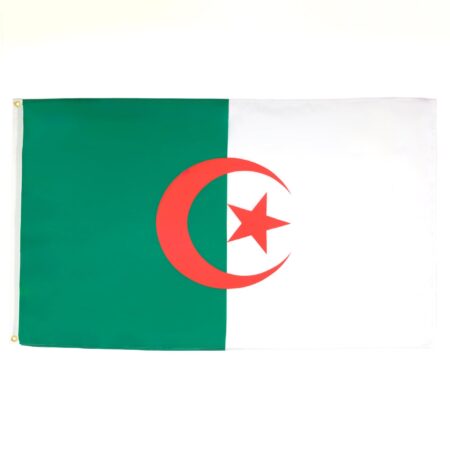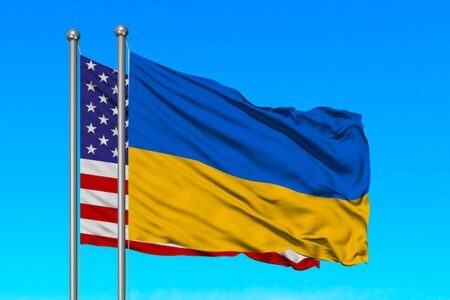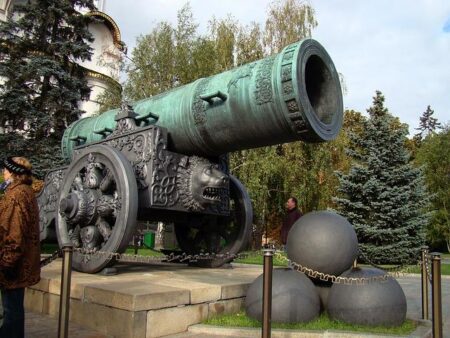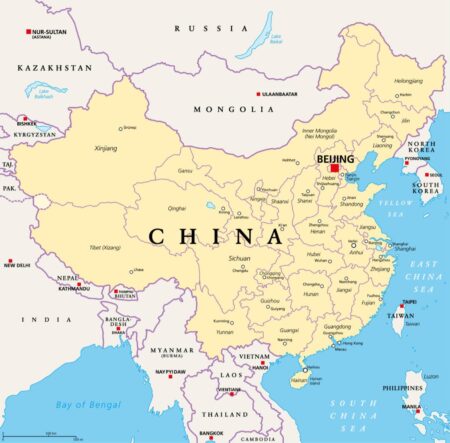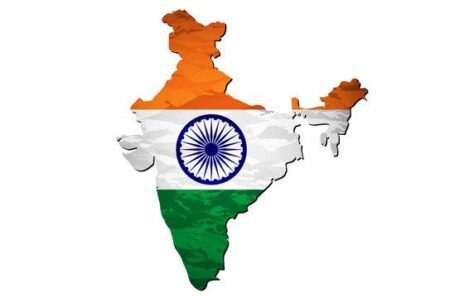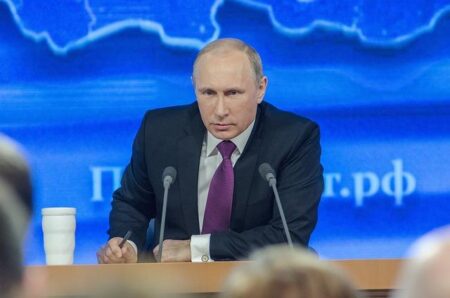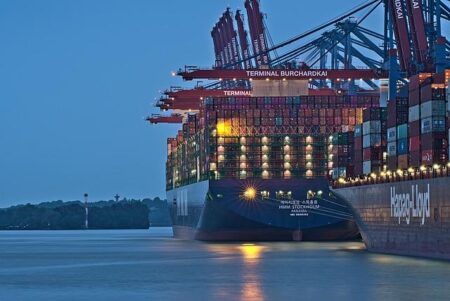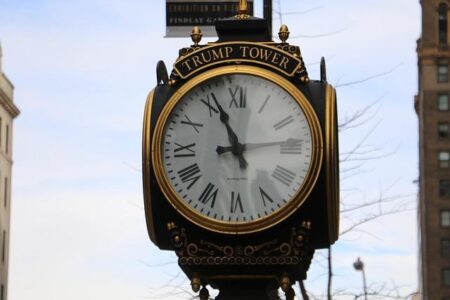In a recent discussion, Landau engaged with Spain’s Global Affairs Chief, addressing key issues such as international collaboration, climate change, and economic challenges. The dialogue aims to strengthen bilateral relations and foster shared global solutions.
Browsing: foreign policy
Seizing Russian assets, while appealing in theory as a response to international aggression, presents significant legal and logistical challenges. This complexity involves navigating international law, diplomatic repercussions, and potential retaliation, complicating enforcement efforts.
In a strategic move ahead of the anticipated unveiling of fresh tariffs by President Trump, Chinese President Xi Jinping has launched a charm offensive, seeking to strengthen diplomatic ties and showcase China’s global leadership.
Russia’s strategic maneuvers in U.S.-led peace talks reveal a calculated approach that leverages disinformation and diplomatic feints, allowing it to shape narratives and gain concessions. This method not only undermines Western unity but also bolsters Moscow’s geopolitical influence.
In seeking Greenland, Trump eyes strategic military advantages, a wealth of rare minerals crucial for technology, and control over important trade routes. The acquisition reflects broader geopolitical interests and the U.S. commitment to Arctic dominance.
Algeria has called on Spain to rethink its backing of Morocco’s autonomy proposal for Western Sahara. The request reflects ongoing tensions in the region, as Algeria emphasizes the need for a fair and negotiated resolution to the territorial dispute.
French President Emmanuel Macron has pledged ‚ā¨2 billion in military aid to Ukraine ahead of an upcoming security summit. This significant support underscores France’s commitment to bolstering Ukraine’s defense amid ongoing conflict concerns.
Ukrainian President Volodymyr Zelenskiy has accused Russia of manipulating diplomatic agreements facilitated by the United States, undermining efforts to reach a resolution in the ongoing conflict. This statement highlights ongoing tensions in the region.
Former President Donald Trump suggested that Russia may be “dragging its feet” in peace negotiations regarding Ukraine. His comments come amid ongoing tensions and highlight concerns over the slow progress toward a resolution in the conflict.
US lawmakers are being called upon to intervene in China’s activities in the Democratic Republic of Congo, where it is accused of exploiting critical mineral resources. Advocates warn that such practices could have severe geopolitical and environmental implications.
As global power dynamics shift toward a G2 framework dominated by the U.S. and China, India’s position emerges as a potential third wheel. This article explores India’s strategic options and challenges as it navigates its role in an increasingly polarized world.
Recent US-Russia discussions in the Black Sea are raising alarms in Europe, as intensified military posturing and unresolved tensions could destabilize regional security. Analysts fear these talks may lead to heightened confrontations impacting EU-NATO dynamics.
The U.S. is considering strengthening military cooperation with Japan amid rising regional tensions, despite former President Trump’s past criticisms of the alliance. This potential expansion reflects ongoing strategic interests in the Indo-Pacific region.
The Kremlin has acknowledged that Russian President Vladimir Putin and former U.S. President Donald Trump may have communicated more than the previously reported two times. This revelation raises questions about their relationship during Trump’s tenure.
In a significant diplomatic engagement, former President Trump met with Argentine President Javier Milei at the US Embassy. The discussion focused on strengthening bilateral relations and addressing key economic challenges facing both nations.
US envoy Steve Witkoff emphasized that Russia is not seeking to escalate its conflict with Europe. In a recent statement, he called for diplomatic engagement to address tensions, highlighting the importance of dialogue in maintaining regional stability.
China is urging Japan and South Korea to enhance trade relations as a strategic response to global uncertainties. This initiative aims to strengthen economic ties and foster collaboration amid rising geopolitical tensions, highlighting the region’s interconnectedness.
Italy’s Prime Minister Giorgia Meloni faces a delicate balancing act as she navigates her allegiance to former President Trump while maintaining her responsibilities to European unity. This dilemma highlights the complexities of national and international politics in a shifting landscape.
Chinese Premier Li emphasized the importance of dialogue over confrontation during a meeting with pro-Trump U.S. Senator Steve Daines. The encounter aims to foster mutual understanding amid rising tensions between the two nations.
In “Opinion | Trump‚Äôs bullying is turning Canada from friend to foe,” The Washington Post explores how aggressive rhetoric and policies from the Trump administration have strained U.S.-Canada relations, shifting perceptions of allyship into conflict.


